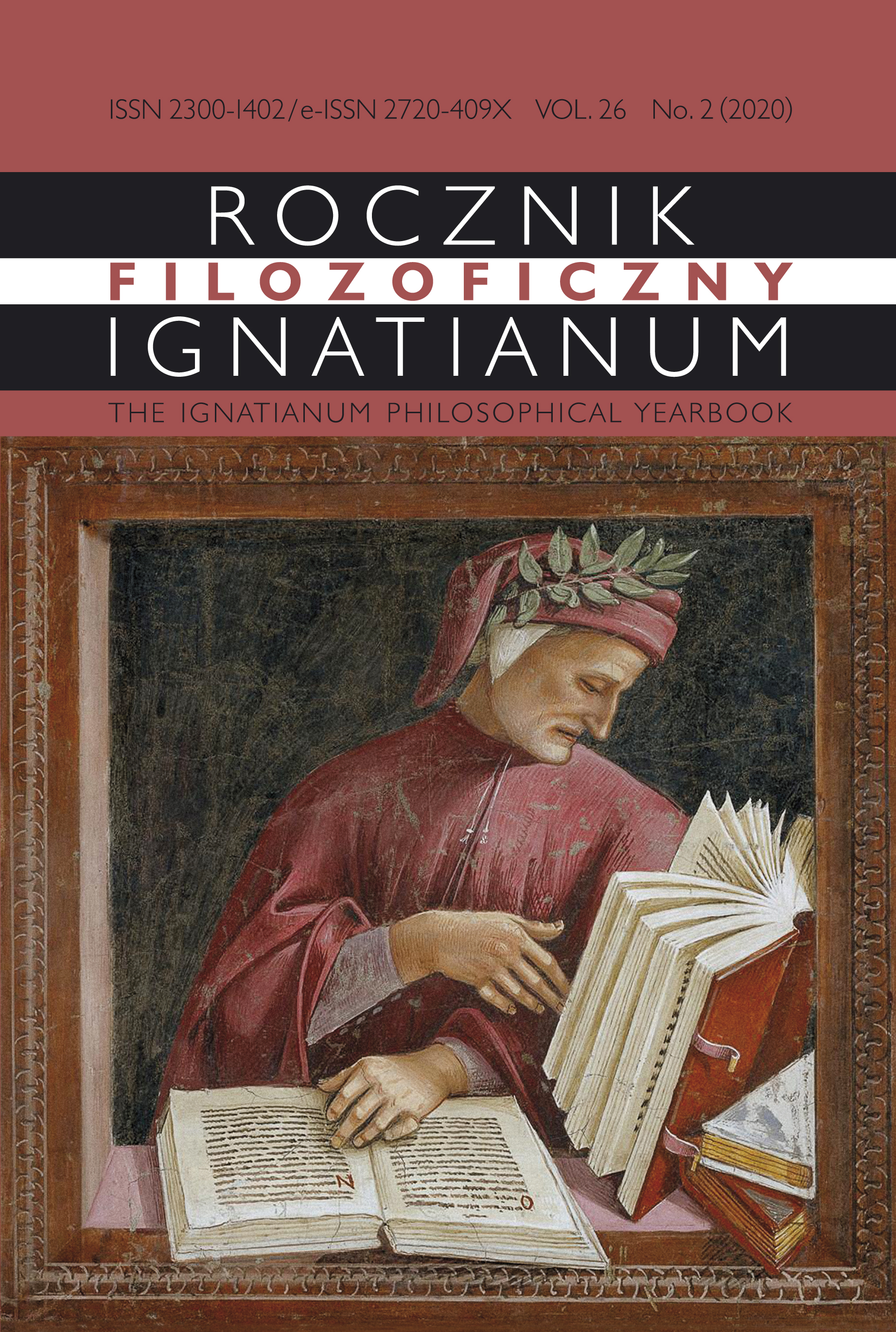In the Shape of the Cross
The Dolorism of Aleksander Wat in the Light of De imitatione Christi
Abstract
The purpose of this article is to reflect on selected works of Aleksander Watt placed in the context of De imitatione Christi by Thomas à Kempis and to verify the view that suffering functions in the consciousness and poetic imagination of the writer as a value conducive to the spiritual development of the individual. The author analyzes the poet’s memoirs in order to show how reading the book he discovered during WWII, while exiled in Kazakhstan, influenced Wat’s choices and attitudes, or his perception of the decisions he made (above all, the one about refusing to accept Soviet citizenship, which was a potentially self-destructive act, but in fact a salutary one). Then the article interprets the poetic texts that emphasize the theme of suffering and following Jesus Christ. The Wiersze somatyczne [Somatic Poems] cycle is discussed, on top of Wat’s works based on the symbolism of the crown of thorns and the death on the cross, the excerpts from his drama Kobiety z Monte Olivetto [The Women of Monte Olivetto], and the poem with the incipit “U szczytu antynomij….” [At the top of antinomies...], which is formed into the shape of the cross. The researcher reads them in a hermeneutical way in the course of which she analyzes the symbols and biblical allusions, associates literary metaphors with autobiographical traces of the poet’s experiences, and uncovers the connection between the texts of the two authors. The main thesis of the article is that in the discussed works, there is a dolorous theme – that is, one in which suffering is exposed and presented as an ethically valuable experience. A reading of a number of works in which pain, depicted in various ways, is at the same time a reminiscence of the poet’s own physical and mental anguish and a reference to the Passion of Christ, allows one to conclude that for the author of Wiersze śródziemnomorskie [The Mediterranean Poems], suffering is a state of spiritual transformation that brings man closer to the sphere of the sacred. The author ultimately concludes that, in light of the work of Thomas à Kempis, Wat’s dolorism appears as a modern interpretation of the idea of following Christ, marked by the necessity of being different from Him.
Copyright (c) 2020 Jesuit University Ignatianum in Krakow

This work is licensed under a Creative Commons Attribution-NoDerivatives 4.0 International License.
The Yearbook only accepts materials for publication that are free of all conflicts of interest, and that in no way involve conflicts over authorship, copyright, etc. The Editors will take action against any cases of plagiarizing, ghostwriting1, guest/honorary authorship2, etc. Where co-authored work is concerned, the Author listed first is expected to take responsibility for the submission, and is required to make clear the contributions of all of the Co-Authors involved. In the event of the publication owing its existence to funding dedicated to this purpose, this fact should be made clear: e.g. in any note of thanks/acknowledgement, or in a footnote, etc. Explicit notification should be given of any form of reprinting, with the appropriate evidence of permission to publish being furnished as required. Any impropriety on the part of Authors/Reviewers risks exposing them to appropriate responses from the relevant institutions.
______
1 This term refers to instances of a person who has made an essential contribution being omitted from the list of authors, or from notes conveying gratitude and/or acknowledgement.
2 This occurs when a person who has made either an insignificant contribution or no contribution at all nevertheless appears on the list of authors.





